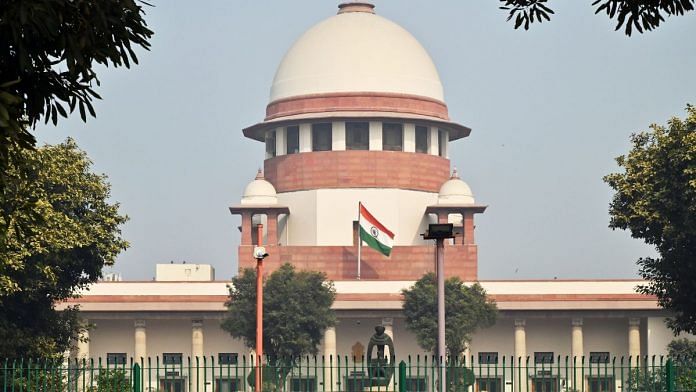
Thank you dear subscribers, we are overwhelmed with your response.
Your Turn is a unique section from ThePrint featuring points of view from its subscribers. If you are a subscriber, have a point of view, please send it to us. If not, do subscribe here: https://theprint.in/subscribe/
It is clear. India is likely to grow at a robust pace in the short term and possibly in the long term. The recent EY report indicates that @ 100 India has the potential of becoming a 26 trillion-dollar economy. The journey of Amrit Kaal is definitely upon us, improving lives along with the building of modern infrastructure.
In spite of the tremendous economic progress, post liberalisation in 1991, three recent events, cited in this article, within the country, shows that the moral fabric, cohesiveness of society and outlook, has been torn apart and requires nurturing and care during Amrit Kaal.
An event in Gurgaon reported by TOI drew my attention, in which 2 cops while trying to stop a spat over parking, were thrashed. The attack was so vicious by five citizens, that the Sub Inspector had to pull out his service pistol to save his life. While this incidence is not unique, since such happenings are reported regularly, the decadence in values have been so dramatic that the custodians of law are being challenged.
The second, has been the BBC program on the Gujarat riots, in which some sections of the students in JNU and other Universities were adamant on seeing the program (banned by the Government) on-campus, not once questioning the motive behind the program decades after the riots. While the Supreme Court had cleared Narendra Modi than Chief Minister, but to no avail, since what is portrayed by outside agencies “must be true”. While curiosity is appreciated, but it gives an impression of a subservient mindset and a toxic attitude that does not bode well for the fabric of our society.
And lastly, how can the Adani-Hindenburg episode not be talked about? Whatever be the alleged wrong doings of the Adani group, that needs urgent proper review of regulators, but no serious questions are directed against the short seller Nathan Anderson of Hindenburg Research. Again, due to our lack of self-confidence and moral servitude “whatever emanates from outside” gains traction, notwithstanding the milking of the issue by opposition.
However, there is a way to arrest this downward slide in our moral fabric although substantial research has been done and commented upon in the past. A few points articulated below is for consideration:
- A regular refrain by criminals is that: “we have got full faith in our judicial system”. If you unpack this statement, it can also be construed that the final verdict is likely to take a long time, sometimes decades after appeals etc., that the tainted individuals have lived their active life normally.
We definitely need quick justice, to restore confidence among the citizens in the judicial system, either by increasing number of judges in all courts and better judicial facilities. Considerable work has been done towards judicial reform, especially in rape cases, but more are required with further appraisal of our criminal laws. We are well aware, that it took around 8 years to bring closure to the Nirbhaya case, even after sustained media coverage.
- With economic progress, India will be further urbanised, with massive mobility of people that would require a different type of policing at the local police station level: humane, understanding and compassionate. Regular police training can be at a heart of this strategy.
- When large economic frauds are exposed either by government agencies or whistle blowers, it is incumbent on the regulators to investigate expeditiously, build a credible case to withstand the scrutiny of law. The recent NSE co-location case that was brought before Securities Appellate Tribunal (SAT) is a pointer in that direction. It builds a perception of deliberate whitewashing, to allow people in high places to go off lightly, which is detrimental to the values of society.
- The finest enabler in showing the state of our society is the media. While negative events need to be highlighted, but positive articles / talk shows, without sounding like the organ of the ruling dispensation will soothe the stress within society and citizens will feel as stakeholders in our progress. A recent article in The Print, that revealed how India navigated a tricky global situation to bring discounted Russian oil to India, to protect our economic wellbeing, needs appreciation.
Many foreign media outlets portray our nation as dysfunctional, and try to widen societal fractures. Domestic media outlets would do a great service in projecting the state of the economically developed countries. There could be lessons for us all.
By now, you may be thinking that I have got “right” political leanings. Not really, but looking at the decline in our moral values, I thought of penning these lines.
Remember the old English adage that “Charity begins at home”. If we do not set our house in order, set high moral standards, many more Hindenburg’s are on the way during Amrit Kaal!
Also read: SubscriberWrites: India’s ‘system’ has failed but illusion of leadership lingers
These pieces are being published as they have been received – they have not been edited/fact-checked by ThePrint.

COMMENTS